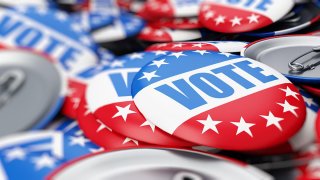
Las elecciones de mitad de período del 8 de noviembre.
Residents in two cities along the Peninsula will vote this fall whether to increase hotel taxes to fund city services like road repairs.
Belmont's Measure K and Millbrae's Measure N, which are both on the Nov. 8 general election ballot, would each raise the transient occupancy tax - which applies to guests at hotels, motels and short-term rental properties - from 12 percent to 14 percent of the cost for the lodging.
According to Belmont city officials, Measure K would provide some $600,000 each year to support road and pothole repairs, consistent emergency response times, senior services and upkeep of the city's public spaces.
Measure N would fund a similar set of priorities in Millbrae, but would provide an estimated $1.5 million annually. In addition to road repairs and maintaining the city's public spaces, Measure N would also fund local law enforcement patrols and efforts to attract new businesses to Millbrae.
Get a weekly recap of the latest San Francisco Bay Area housing news. Sign up for NBC Bay Area’s Housing Deconstructed newsletter.
Among cities in San Mateo County, Brisbane, Foster City, San Bruno and San Mateo all have a transient-occupancy tax at 14 percent, with East Palo Alto's rate set to increase to 14 percent on Jan. 1, 2023. Half Moon Bay has the highest rate in the county at 15 percent.
Belmont city officials argued the increase, which will apply solely to the city's hotel, motel and short-term rental guests and not the city's residents, would help the city recover from the COVID-19 pandemic.
The city collected nearly $4 million annually in transient-occupancy tax revenue prior to the pandemic, but that fell to just $1.32 million in 2021.
City officials estimate it would take until 2026 for transient-occupancy tax revenue to recover to pre-pandemic levels if the tax remains at its current level.
Belmont Vice Mayor Tom McCune argued during the July 26 meeting in which the Belmont City Council voted to place the measure on the ballot that the increase is also unlikely to depress tourism or business travel.
"It has helped the city's budget quite a bit," McCune said. "Once business travel gets back to more normal levels, it will hopefully help us more than it is now, but the feedback I've gotten from hotel general managers is that this is fine and it's not a problem."
According to officials in both cities, early polling has indicated between 60 and 70 percent of likely voters support the tax increases in the respective cities. Both measures will require a simple majority to pass.